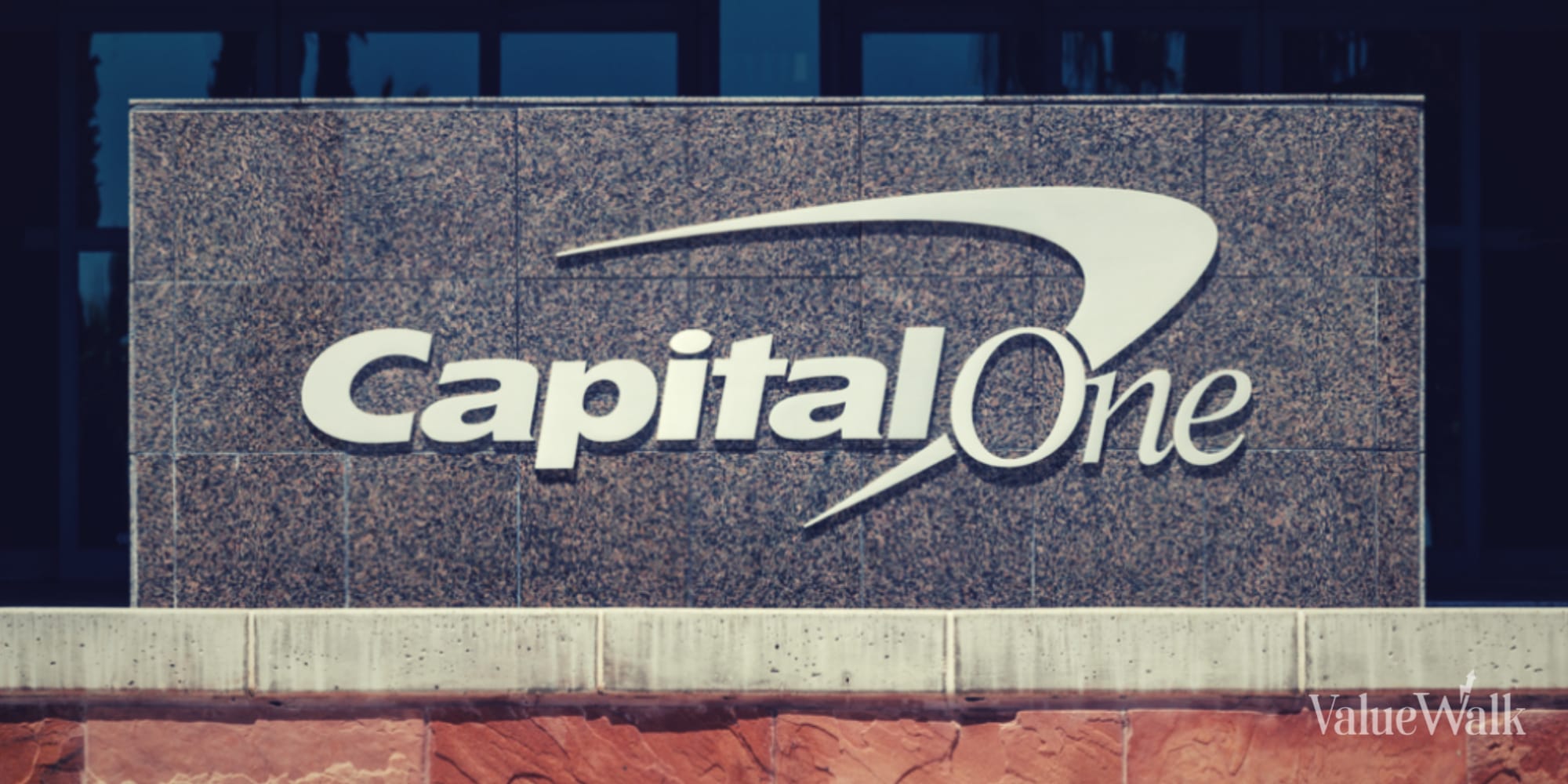It is no secret that Warren Buffett, chairman and CEO of Berkshire Hathaway (NYSE:BRK.A) (NYSE:BRK.B), likes financial stocks. In fact, financial stocks make up about one-quarter of his portfolio, with the financial sector coming in second place behind his massive 50% position in Apple.
One of the newest financial stocks in the Berkshire Hathaway portfolio is Capital One Financial (NYSE:COF), which was added in the first quarter of this year. In the second quarter, Buffett boosted his position in the bank and now holds about 12.5 million shares, making it his 17th-largest holding.
A key criteria Buffet looks at is good value. Capital One would certainly qualify as a cheap stock, but let’s take a look to see if it’s a good value.
Improved efficiency and earnings
Capital One is best known as one of the largest issuers of credit cards in the country, but it is also a full-service bank with some 300 branches in the mid-Atlantic region, mostly in the Washington, D.C. and Baltimore area and New York City and Long Island. In fact, Capital One is the ninth-largest bank in the U.S. with $469 billion in total assets.
However, as mentioned, most of its revenue comes from its credit card division, as it is one of the leading issuers of credit cards. In the third quarter, Capital One generated roughly 70% of its $9.4 billion in total revenue from credit card loans. Credit card revenue increased 6% in the quarter to $6.6 billion, thanks to a 16% increase in credit card loans, which rose to $147 billion. Those credit card gains helped offset a 5% decrease in auto loans, consumer banking and commercial loans.
Overall, Capital One posted some nice top- and bottom-line numbers in the last quarter. Overall net revenue was up 4% while net income climbed 6% year over year to $1.7 billion. Provisions for credit losses also dropped 8% in the quarter, falling to $2.3 billion, but the net charge-off and 30-day delinquency rates both increased, rising 132 and 93 basis points, respectively.
Capital One also lowered its efficiency ratio to 51.9% from 56% in the year-ago quarter and 53.2% in the second quarter. This ratio is a key metric for banks because the lower the efficiency ratio, the less the bank is spending to generate income.
Another efficiency metric is the return on equity, which improved to 13.6% from 10.7% the previous quarter and 13% a year ago. Capital One’s efficiency has been helped by increased net revenue and a 2% year-over-year drop in non-interest expenses.
Good value or trap?
Capital One has outperformed most of its banking peers this year, with its stock price rising 27% year to date. The major differentiator has been its credit card business, as consumer spending has remained robust throughout this period, and higher yields on credit card loans due to high interest rates have proven to be a major benefit.
While the economic outlook for next year is murky, most economists aren’t expecting a recession, although some say consumer spending could fall back a bit as the economy slows. However, others say lower inflation could sustain consumer spending, particularly if wage growth outpaces inflation.
The other concern for Capital One is a proposal by the Consumer Financial Protection Bureau (CFPB) to put a cap on late fees and various types of “junk fees.” Where that goes bears watching heading into 2024.
Capital One’s valuation is cheap whichever way you look at it. It is trading at just eight times earnings, and it is trading below its book value. Those are two hallmarks of value stocks.
As far as whether or not this stock is a buy, I would definitely keep holding it if I already owned it, but I’d probably wait a quarter for guidance on 2024 and more visibility on the fee cap before making a buy decision. It’s a good company, and in a robust, growing economy, Capital One is a good stock to own.
Disclaimer: All investments involve risk. In no way should this article be taken as investment advice or constitute responsibility for investment gains or losses. The information in this report should not be relied upon for investment decisions. All investors must conduct their own due diligence and consult their own investment advisors in making trading decisions.





